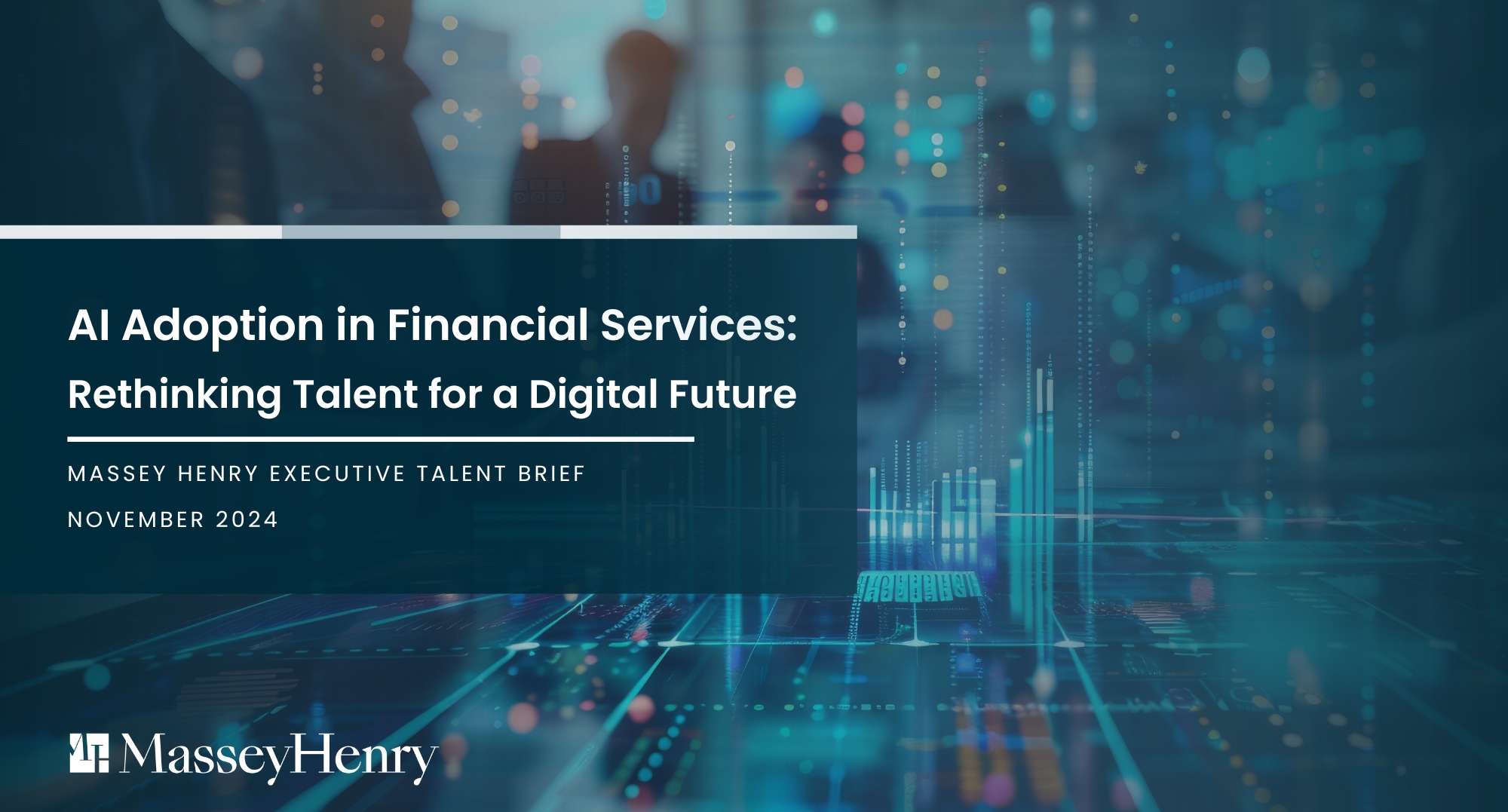
Artificial Intelligence (AI) and Machine Learning (ML) have emerged as a disruptive force with the potential to transform various industries, including financial services.
As AI adoption in the financial sector continues to expand, examining its talent implications will be critical as organizations, and leaders, navigate this quickly evolving technology.
In this article we examine talent implications for AI adoption, including the importance of:
- Emerging skillsets and competencies required for financial services leaders
- Workforce transformation strategies to attract new talent, upskill existing employees, and retain new and older cohorts
- Ethical considerations of AI, ensuring that systems are implemented to align with ethical principles, fairness, and transparency.
As an entrepreneur, investor, and leader focused on innovation and technology—such as during my time at MaRS—I have witnessed the transformative impact of artificial intelligence (AI) across industries, including financial services.
AI is reshaping leadership competencies and driving organizational change, but also brings ethical considerations that must be addressed. As I discussed during a recent panel hosted by Massey Henry, financial institutions must prioritize upskilling, adaptability, and ethical leadership to harness AI’s potential and navigate these shifts effectively.
Our latest report examines critical skillsets required of financial services leaders and ethical priorities in the age of AI.
New Competencies
AI is reshaping financial services at an unprecedented pace of adoption, creating transformative opportunities and complex challenges for executives.
Integrating AI technologies in financial services demands new skills and competencies. Traditional roles, such as data analysts and financial advisors, now require a deeper understanding of AI algorithms, ML, and data extraction techniques. In addition, a sound understanding of financial analytics is required to utilize AI applications effectively.
A recent study conducted by the Charted Financial Analyst (CFA) Society determined that approximately 20% of all CFA holders are pursuing additional education in AI and ML techniques and technology applications.
Growing Prevalence of New Roles
Many new roles, such as AI specialists, data scientists, and algorithm auditors, will become prevalent in the financial services industry.
These professionals are responsible for developing and maintaining AI models, optimizing algorithms, and ensuring compliance with ethical and regulatory standards. At present, it is clear that these competencies and skills are in limited supply, and many sectors of the economy are competing for talent from the small labour pool.
Upskilling Initiatives for Employees
Financial service organizations must offer educational programs, mentoring, and coaching opportunities.
In addition to an emphasis on external talent acquisition to address the skill gaps posed by AI adoption, organizations must offer opportunities to upskill their employees in this field. Furthermore, organizations should consider redeploying high-performance generalist employees to areas that require astute judgment, creativity, and relationship-building skills, such as strategic decision-making, compliance, and client engagement. These skills will be in high demand to help companies navigate the impact of AI adoption within the organization and in the marketplace.
Organizational and Cultural Transformation
The adoption of AI in financial services will lead to a significant transformation of the workforce and organizational culture. Routine tasks, such as data entry, document processing, and basic customer service, will be increasingly automated, resulting in a shift in job responsibilities and required competencies.
Collaboration and innovation skills will be in high demand as organizations respond to new market entrants, products, and service offerings, as well as an increasingly digitized customer base.
Consequently, financial institutions must realign their workforce strategies to attract new talent, upskill existing employees, and retain new and older cohorts for increasingly more complex tasks.
Key Considerations
To support such transformation efforts, organizations must foster a culture of:
Agility
Continuous learning
Collaborative innovation
Organizational and Cultural Transformation
The financial services industry, in general, has historically constrained innovation and experimentation. While necessary, the increased focus on risk and compliance following the 2008 financial crisis has also presented barriers to innovation.
To overcome these barriers to innovation, executive leaders must establish purpose-driven organizational values to enable the organization to succeed.
These cultural change initiatives must cascade from the top, enabling all levels of the organization to embrace the change, take risks, and learn new approaches within a well-established framework that defines organizational principles.
These principles are needed to help the organization deal with the impact of rapid transformation and the ethical considerations of AI.
Ethical Considerations
As AI becomes more prevalent in financial services, ethical considerations are paramount. The decisions made by AI algorithms may have profound implications for customers, businesses, and society at large. Consequently, organizations must ensure that AI systems are designed and implemented to align with ethical principles, fairness, and transparency.
Looking Ahead
Adopting AI in the financial services industry brings significant opportunities and challenges. Organizations must recognize the talent implications and invest in reskilling and upskilling their employees to ensure a knowledgeable and adaptable workforce.
The AI transformation will require a strategic approach, encompassing acquiring new skillsets, reimagining job roles, and developing an ethical framework to guide the responsible use of AI technology.
By embracing the talent implications of this industry shift, financial institutions can leverage AI’s potential to drive innovation, improve decision-making, and enhance customer experiences.
About Massey Henry
Executive Search, Coaching, Assessment, and Advisory Services

Michael Henry
Managing Partner, Massey Henry

John Sanders
Senior Partner, Board & CEO Services

Alex Bunyan
Partner & Head, Leadership Practice

Linda Mundt
Engagement Manager

